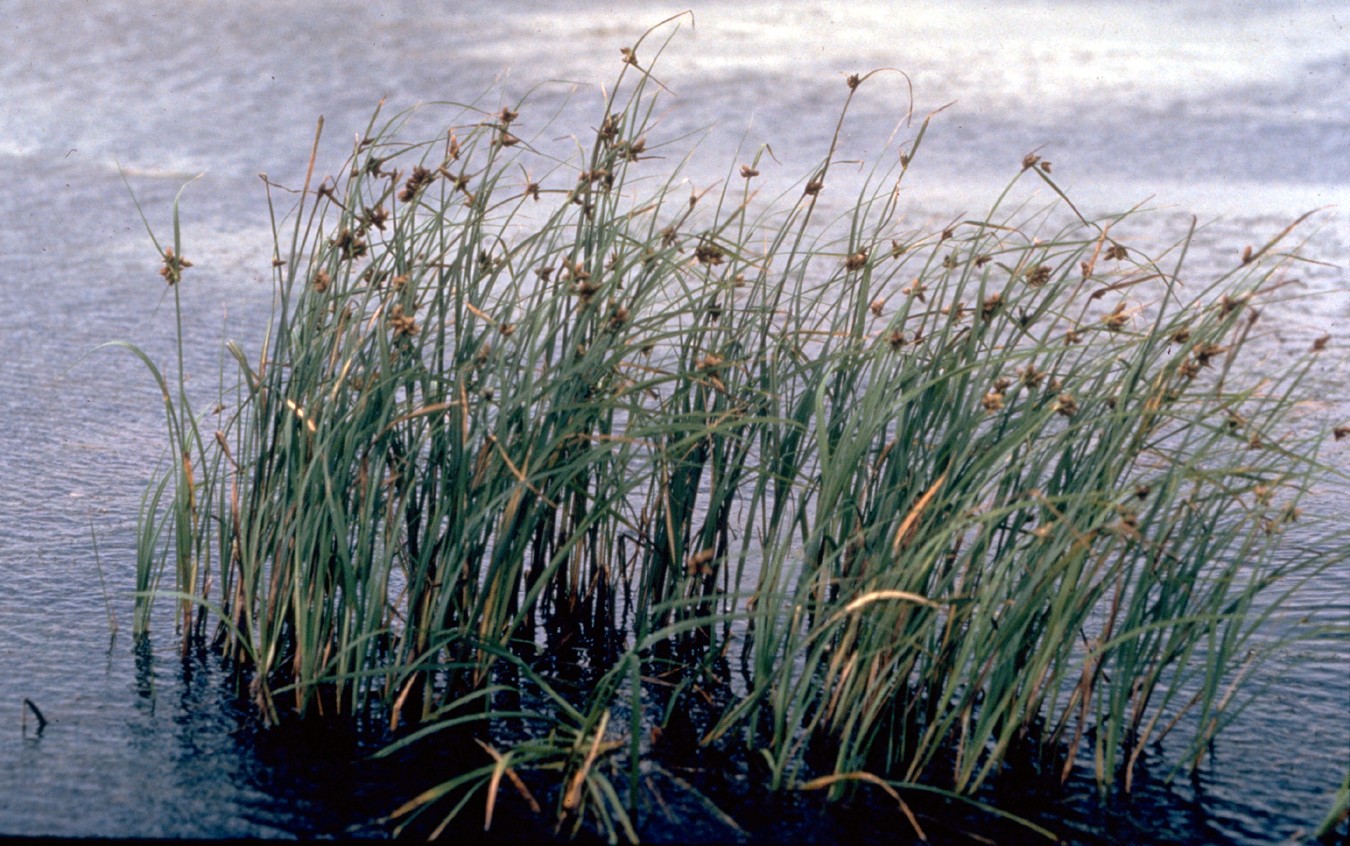
Alkali bulrush
Bolboschoenus maritimus
Formerly Scirpus maritimus. Cool season, rhizomatous, perennial grasslike occurring in wet alkaline or saline soils in meadows, marshes or near waterways. Valuable for providing cover for waterfowl and shore birds. Recommended for reclamation of mud flats, bogs or other areas adjacent to shallow or stagnant water.
- Growing Region: California, Pacific Northwest, Southeast
- Blooms:
- Life Form: Grasslike
- Application Type: Habitat Restoration, Land Reclamation, Erosion Control
- Height: 1-4 ft
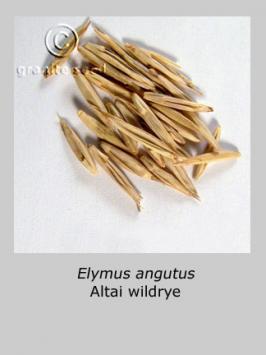
Altai wildrye
Leymus angustus
Formerly Elymus angustus. Robust, Cool season, long-lived, perennial bunchgrass with short creeping rhizomes. Well adapted to loam and clay soils, drought tolerant and extremely salt and alkaline resistant. Excellent winter hardiness. Root system may extend to 14 ft. below the surface, making it useful for soil stabilization. Excellent forage, especially in winter when plants stand above the snow surface available for grazing. Nearly as productive as Tall wheatgrass (Thinopyrum ponticum) on saline soils.
- Growing Region: Pacific Northwest, Intermountain West
- Blooms:
- Life Form: Grass
- Application Type: Agricultural Conservation, Erosion Control, Habitat Restoration, Land Reclamation
- Height: 1-4 ft
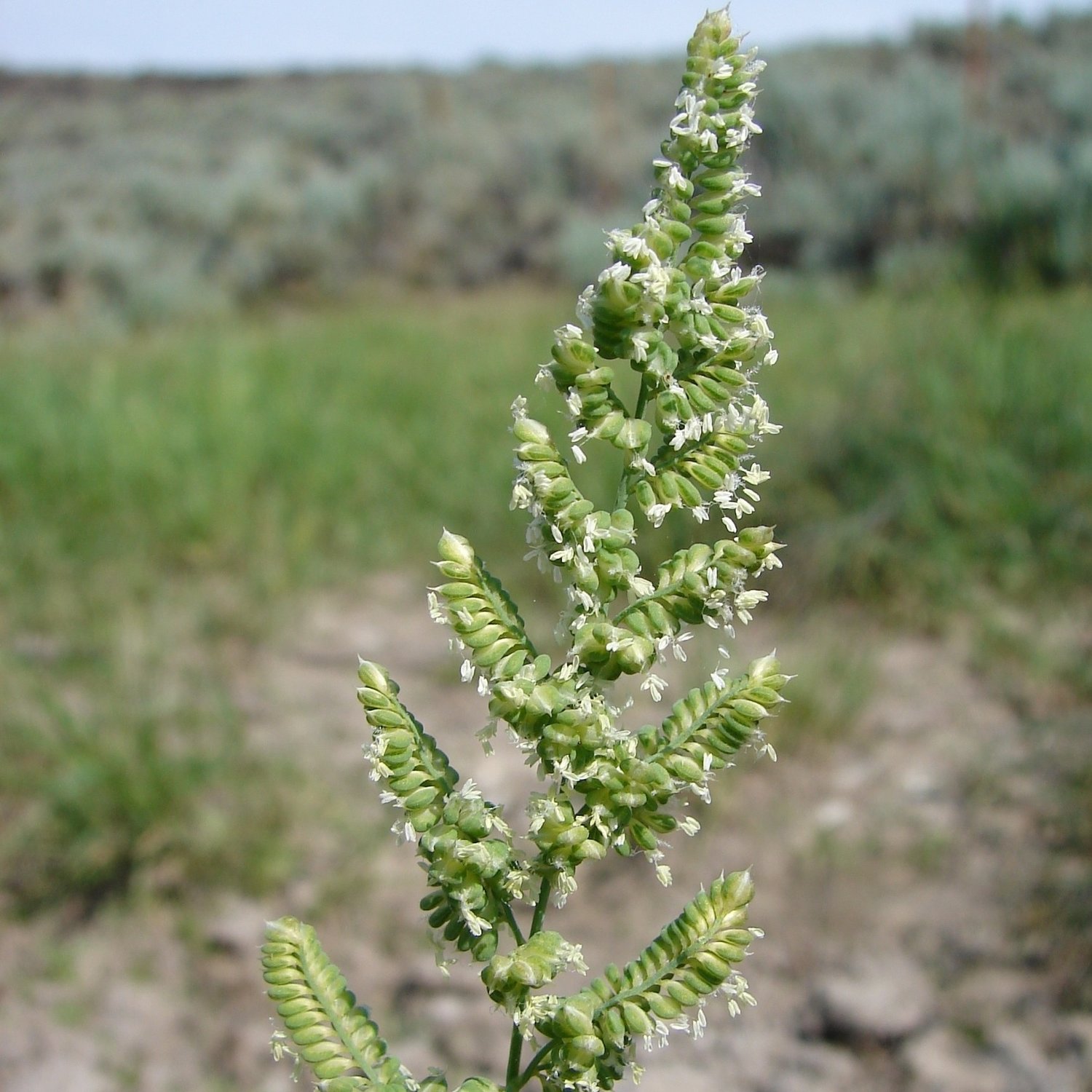
American sloughgrass
Beckmannia syzigachne
Cool season, robust annual or short-lived perennial that may develop short rhizomes. Commonly occurs on wet sites such as ponds, swamps, ditch banks, shallow marshes and sloughs. Prefers clay soils; tolerant of saline soils. Shallow-rooted and able to colonize denuded wetland soils, making it excellent for riparian reclamation. Seeds are eaten by migratory birds. Palatable and frequently used for hay or grazing.
- Growing Region: Pacific Northwest, Intermountain West
- Blooms:
- Life Form: Grass
- Application Type: Agricultural Conservation, Erosion Control, Habitat Restoration, Land Reclamation
- Height: 1-3 ft
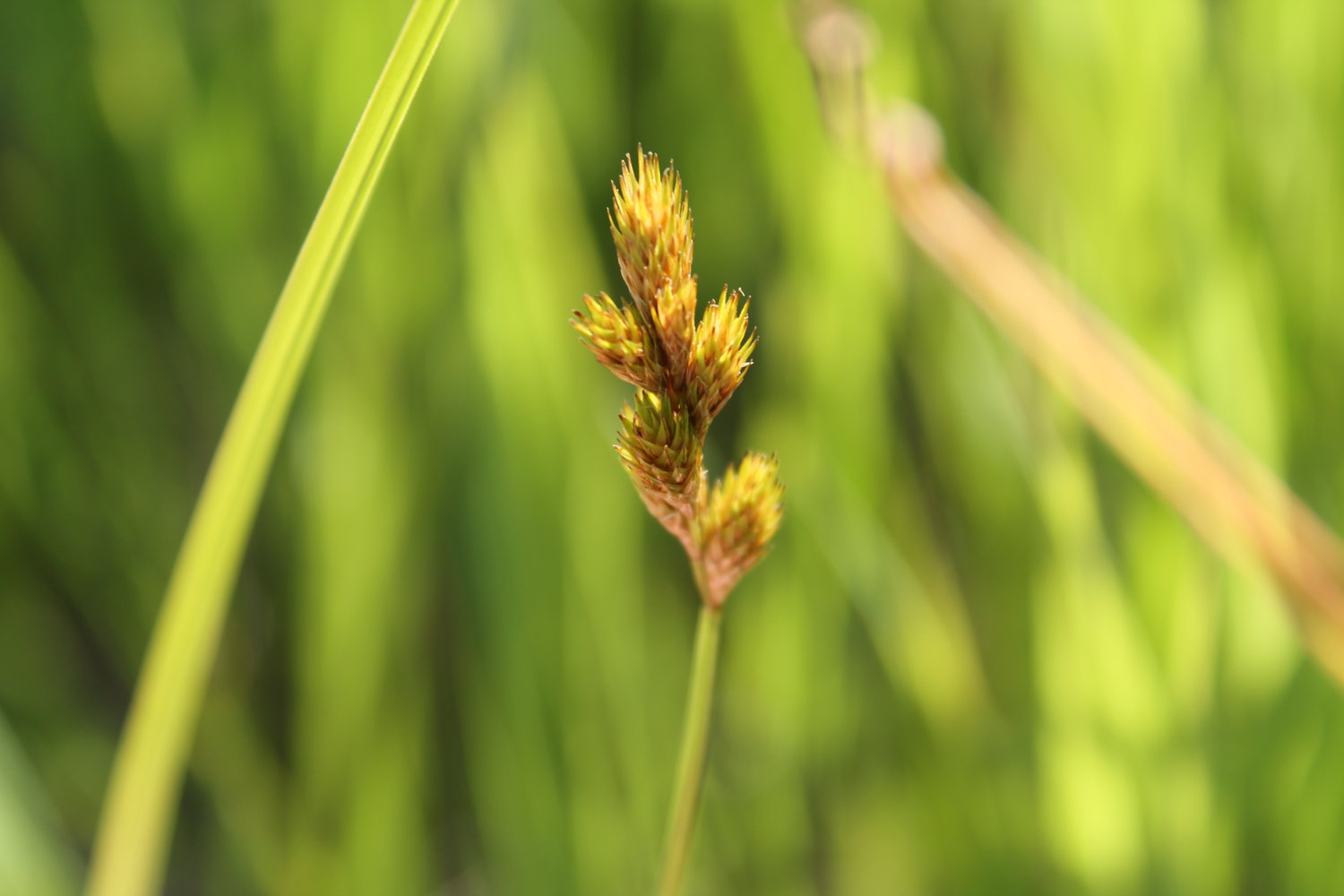
Bebb's sedge
Carex bebbii
Cool season, tufted, native perennial grasslike. Occurs in wet meadows, streambanks, ditchways and saturated soils from low to mid elevations. May mimic an annual by maturing and flowering in its first growing season. Increases with disturbance. Good palatability to livestock and wildlife. Useful for wetland and riparian restoration.
- Growing Region: Midwest, Southeast, Pacific Northwest
- Blooms:
- Life Form: Grass
- Application Type: Agricultural Conservation, Erosion Control, Habitat Restoration, Land Reclamation
- Height: 1-2 ft
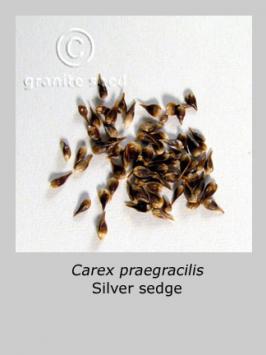
Blackcreeper sedge
Carex praegracilis
Cool season, native perennial grasslike with aggressive black rhizomes. Occurs in seasonally moist wetland areas and prairies, from low elevations up to 10,000 ft. Adapted to fine, medium and coarse alkaline and serpentine soils. Highly palatable to livestock and wildlife and tolerant of grazing and trampling. Useful for riparian and wetland reclamation. Occasionally used as a low maintenance lawn, requiring little mowing and irrigation and able to withstand foot traffic.
- Growing Region: Intermountain West, Southwest, California
- Blooms:
- Life Form: Grass
- Application Type: Agricultural Conservation, Erosion Control, Turf, Commercial Beautification, Habitat Restoration, Land Reclamation
- Height: 1-2 ft
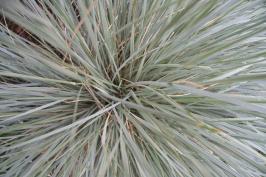
Blue fescue
Festuca ovina glauca
Cool season, short to medium height, perennial bunchgrass adapted to a wide range of soils. Attractive light-blue color, often used as a landscape ornamental. Tolerant of drought, poor soils and road salt. Used in wildland situations, in wildflower plantings and as a turfgrass.
- Growing Region: Pacific Northwest
- Blooms:
- Life Form: Grass
- Application Type: Commercial Beautification, Erosion Control, Habitat Restoration, Land Reclamation, Turf
- Height: 4+ ft
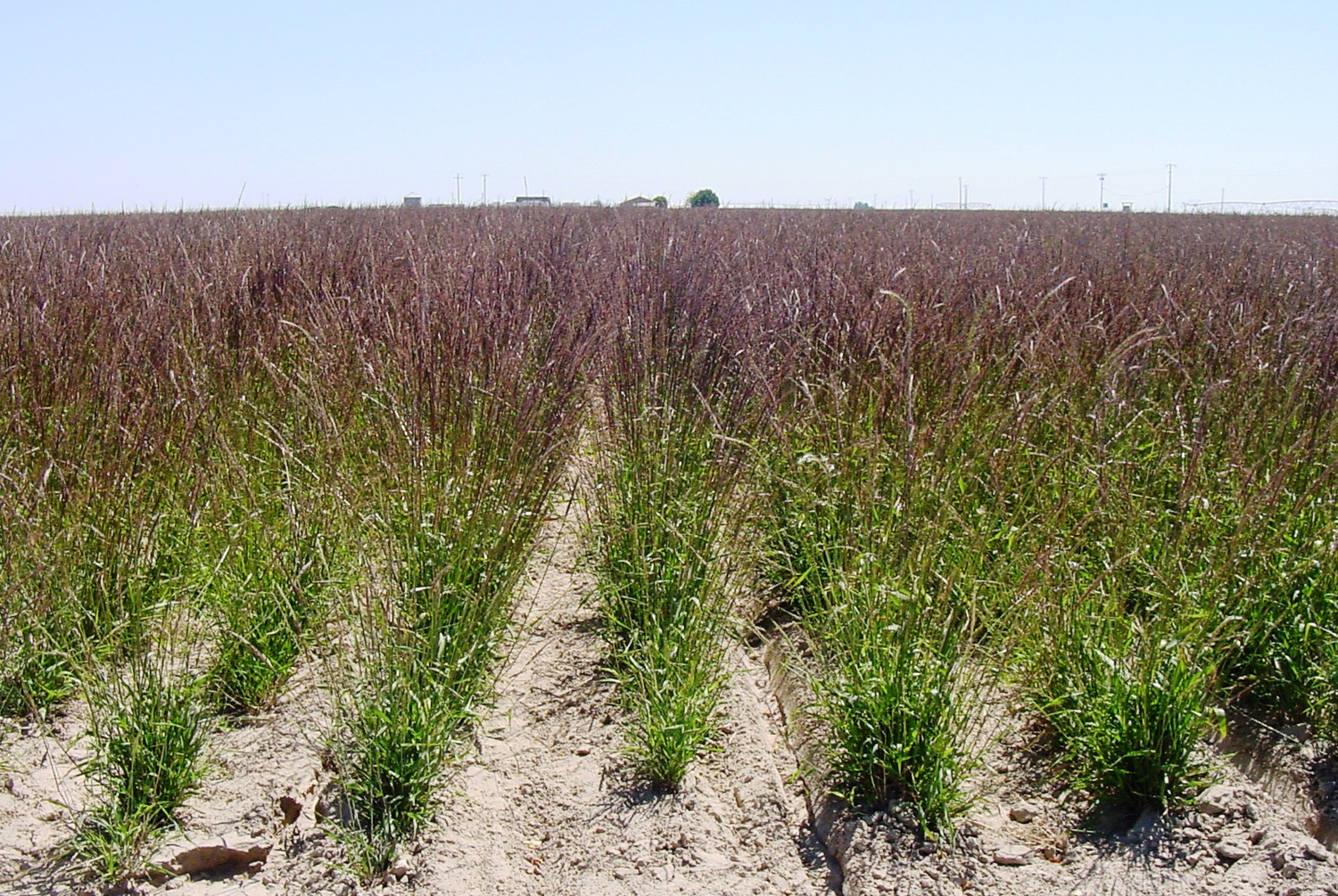
Blue wildrye
Elymus glaucus
Cool season tufted perennial bunchgrass which is highly desirable for use in erosion control seedings. Commonly found thriving in moist meadows, woodlands, or forests at mid elevations throughout its range. This species’ attractive, bluegreen foliage adds value to commercial landscaping projects where slope or site stabilization is needed. Cool season, tufted, perennial bunchgrass which is highly desirable for use in erosion control seedings. Commonly found thriving in moist meadows, woodlands or forests at mid elevations throughout its range. Shade tolerant. Attractive, blue green foliage adds value to commercial landscaping projects where slope or site stabilization is needed. Short-lived but readily reseeds itself. Varieties listed below.
- Growing Region: Pacific Northwest, Intermountain West
- Blooms:
- Life Form: Grass
- Application Type: Agricultural Conservation, Erosion Control, Turf, Commercial Beautification, Habitat Restoration, Land Reclamation
- Height: 4+ ft
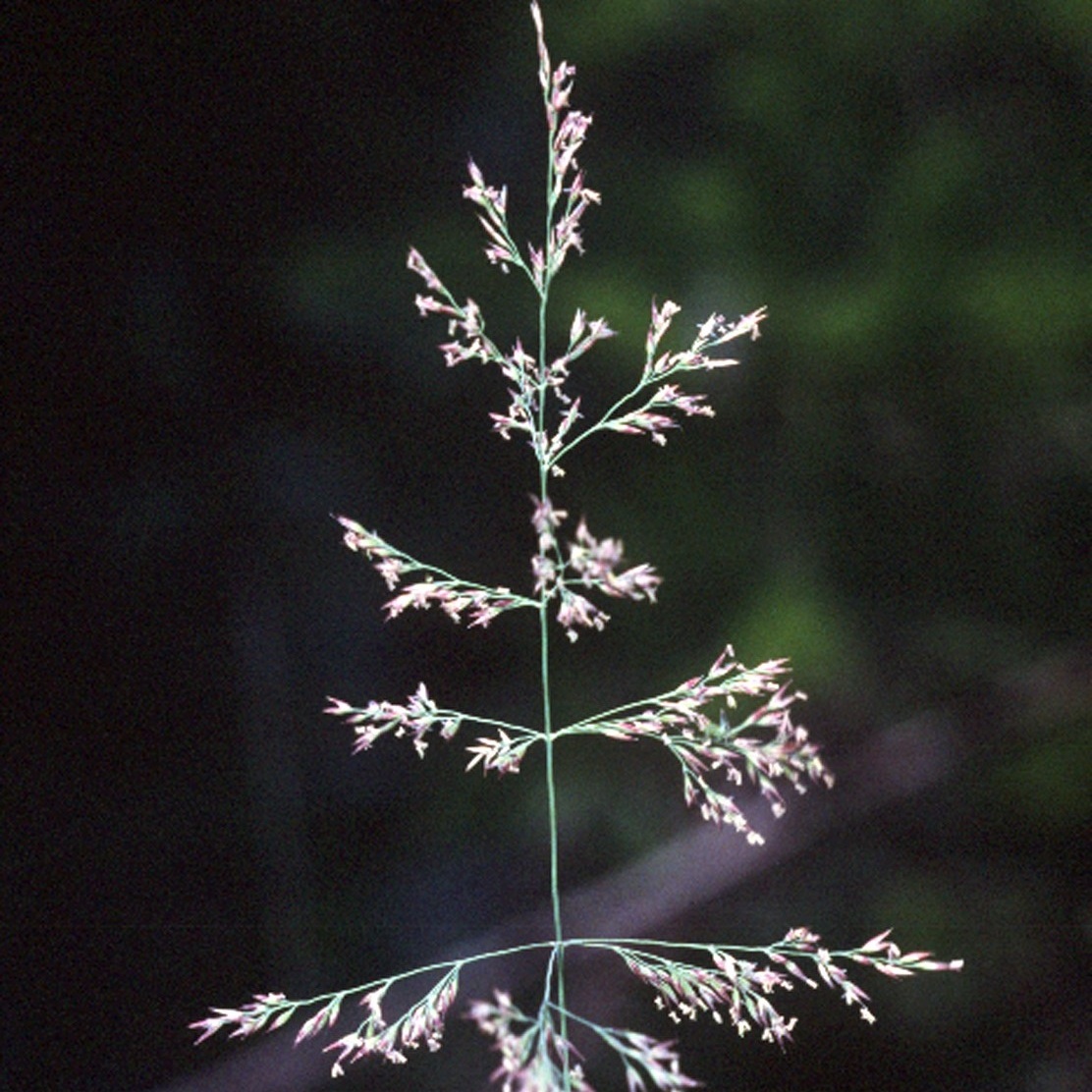
Bluejoint reedgrass
Calamagrostis canadensis
Cool season, sod-forming, native perennial found on wetland and riparian sites. Performs well at low to high elevations. May become dominant in the northern extent of its range, including mainland Alaska. Good forage producer and highly palatable when young, but poor palatability when mature. Excellent for rehabilitating wet mineral or decomposed organic soils in cold environments.
- Growing Region: Pacific Northwest, Midwest
- Blooms:
- Life Form: Grass
- Application Type: Habitat Restoration, Land Reclamation, Erosion Control
- Height: 1-3 ft

CA Coastal Native Wildflower Mix
This mixture of annual native California species has been formulated for rapid growth in the lower rainfall climates and varied soil types of Central and Southern California. For this reason, it is the best choice for permanent or temporary cover in areas that may not support perennial natives without the addition of irrigation or soil amendments.
- Growing Region: California
- Blooms:
- Life Form:
- Application Type: Habitat Restoration, Land Reclamation, Erosion Control
- Height:

California Barley
Hordeum brachyantherum
Cool season, tufted, perennial bunchgrass is moderately alkaline and saline tolerant, and broadly adapted to various soils types. Best adapted to moist sites and tolerant of periods of shallow standing water, but is also summer-drought tolerant. Typically medium-lived but short-lived on drier sites. Excellent seedling vigor and quick growth. Important species to riparian areas, wetlands, meadows, forest openings, salt marshes and ocean beaches from sea level up to 11,000 ft. elevation. Rarely dominates, eventually yielding to longer-lived, more persistent species. Useful as a quick cover and nurse crop in habitat restoration mixes. Palatable to herbivores in the spring and can be used in dryland pasture at high elevations.
- Growing Region: California
- Blooms:
- Life Form: Grass
- Application Type: Agricultural Conservation, Erosion Control, Habitat Restoration, Land Reclamation
- Height: 1-2 ft
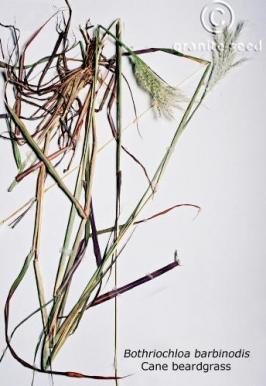
Cane beardgrass
Bothriochloa barbinodis
Formerly Andropogon barbinodis. Warm season, drought tolerant, native perennial bunchgrass found on open rangelands and rocky slopes. Prefers coarse, well-drained soils but grows on finer soils below 4,000 ft. elevation. Provides good forage when green but tends to become unpalatable when mature. Good for roadside plantings.
- Growing Region: Southwest, Intermountain West, California
- Blooms:
- Life Form: Grass
- Application Type: Habitat Restoration, Land Reclamation, Erosion Control
- Height: 1-2 ft

Chapparal Sage Scrub Mix
Use this mix when native chaparral scrub restoration is desired. It is a blend of grasses, flowers and shrubs for revegetation of soil and slopes with plant types that belong here. There is a quick start grass to protect soil and allow slower perennials to provide their permanent cover in the years to come.
- Growing Region: California
- Blooms:
- Life Form:
- Application Type: Habitat Restoration, Land Reclamation, Erosion Control
- Height:
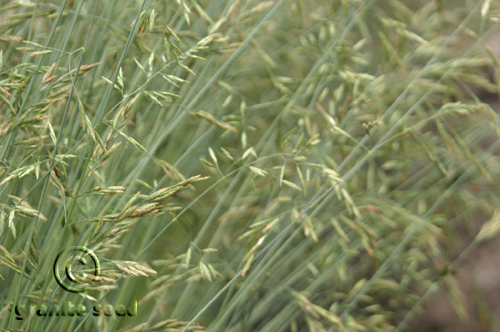
Chewings fescue
Festuca rubra commutata
Formerly F. rubra commutata. Cool season, long-lived, perennial bunchgrass adapted to Cool shady areas. Not alkaline tolerant. Moderate palatability. Similar to non-native Red fescue (F. rubra) but more erect growth habit, may segregate into patches over time and has better heat tolerance. Used for erosion control and turfgrass.
- Growing Region: Pacific Northwest
- Blooms:
- Life Form: Grass
- Application Type: Agricultural Conservation, Commercial Beautification, Erosion Control, Land Reclamation, Turf
- Height: 4+ ft

Coastal Sage Scrub Mix
Use this mix when native scrub restoration is desired. It is a blend of grasses, flowers and shrubs for revegetation of soil and slopes with plant types that belong here. There is a quick start grass to protect soil and allow slower perennials to provide their permanent cover in the years to come.
- Growing Region: California
- Blooms:
- Life Form:
- Application Type: Erosion Control, Habitat Restoration, Land Reclamation, Pollinator Habitat
- Height:
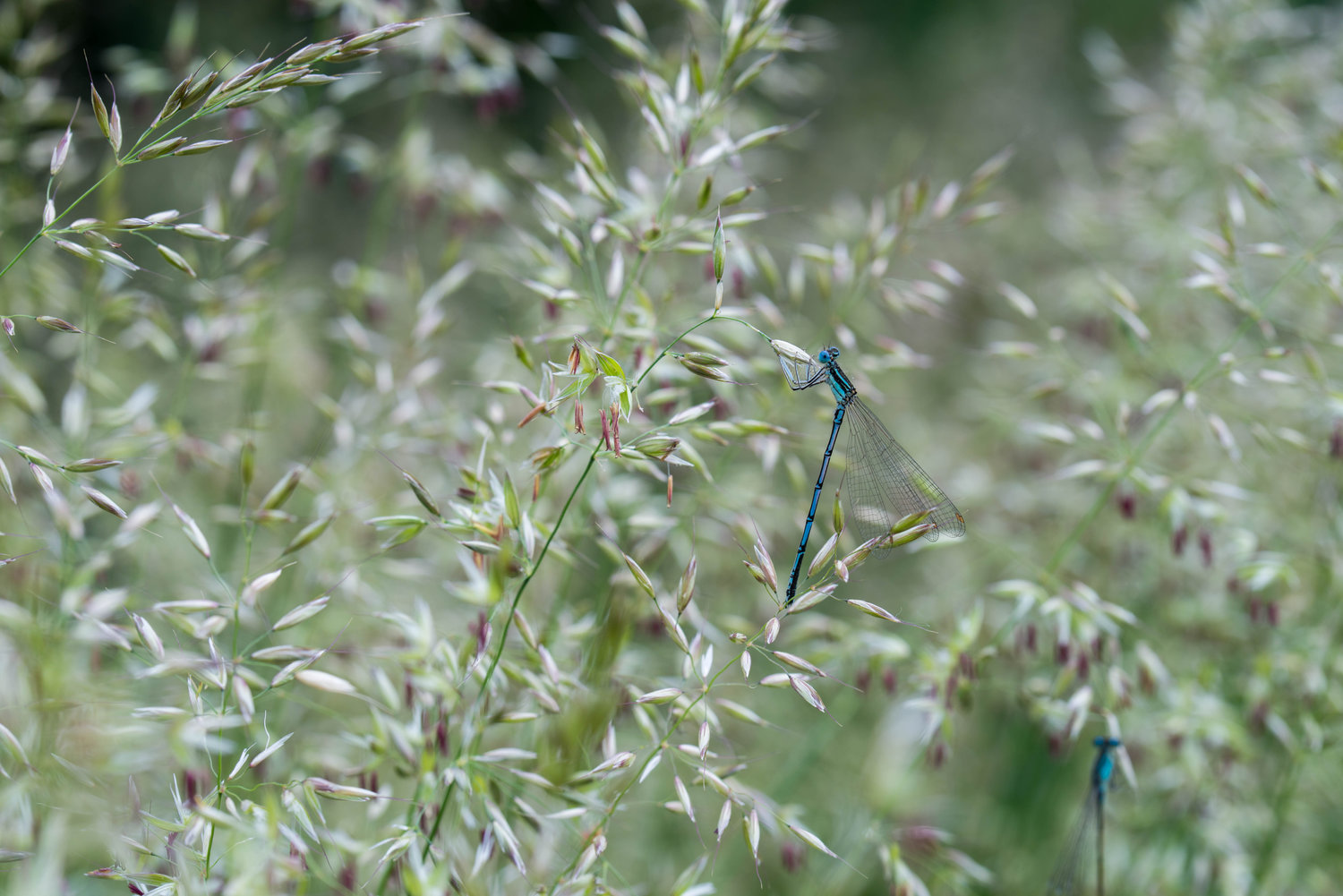
Colonial bentgrass
Agrostis capillaris
Formerly Agrostis tenuis. Cool season, tufted, perennial bunchgrass with a vigorous root system, sometimes with stolons or short rhizomes. Adapted to moist or moderately wet sites. Tolerates acidic and nutritionally poor soils. Nutritious and highly palatable. Commonly used as turfgrass. (
- Growing Region: Pacific Northwest
- Blooms:
- Life Form: Grass
- Application Type: Commercial Beautification, Erosion Control, Land Reclamation, Turf
- Height: 1-4 ft